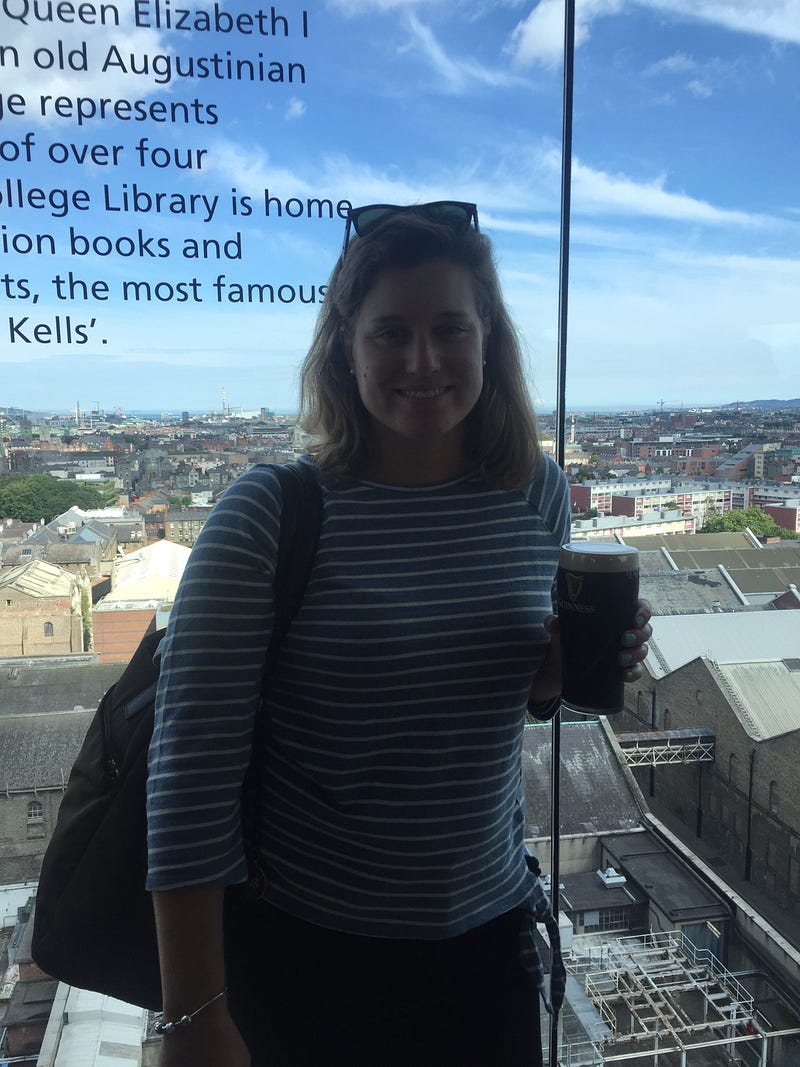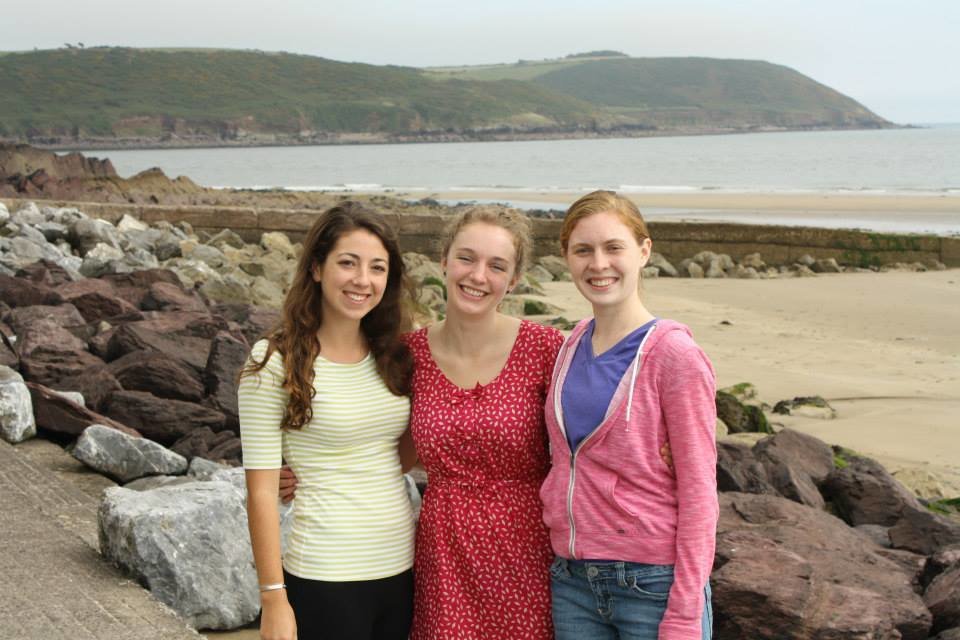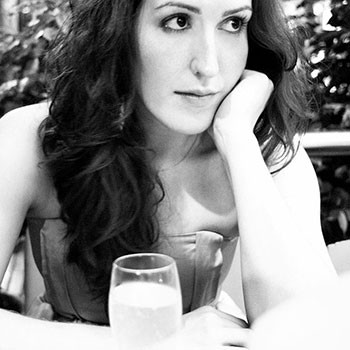1. Dublin..............................................17
2. Galway.............................................11
3. Mayo.................................................5
4. Cork...................................................2
5. Kerry..................................................1
Longford............................................1
Roscommon.......................................1
Sligo...................................................1
Tipperary……………………………1
Thursday, September 28, 2017
Thursday, September 21, 2017
Elizabeth Barrett Browning--Aurora Leigh (1856)
A week ago, as I began to try to organize this report, I was overcome, as I frequently am, for several days with one of the stronger instances I have yet had of the futility of all of these pursuits (i.e. reading, though this could be expanded to any area of study or investigation usually thought of as requiring intellect), seeing as, as I have frequently noted, they have long ceased to lead to any noticeable improvement in either my thinking or personality. This aside however, I think the real problem is that I am no longer in regular contact with anyone who lives any kind of intellectual-artistic life even semi-professionally, which turns all of it into something remote and unreal, a sort of play-acting. I was brought somewhat out of this mood by watching several of the extra features on the Criterion Collection DVD of Robert Bresson's 1983 movie, L'Argent, which happened to be his last film. As a side note I had somehow never heard of Bresson until I was out of college, even though I later found out that he was well-loved there and one of the professors gave a lecture or published something serious on the subject of his films. Anyway the special features included a half-hour Q & A session featuring the aged director at the 1983 Cannes Film Festival, as well as a very well done video essay of about 45 minutes titled "Bresson A to Z" which explores some of the recurrent themes in his work, such as "doors", "hands", "ellipsis", etc, in an illuminating manner. The Q & A (with a nearly entirely French audience; the moderator translated all of the questions into English but none of the participants appears to be an English speaker) is notable mainly because Bresson is largely dismissive of the pedestrian questions that are posed to him, either by returning with a question of his own as to what the other person means as if he had said nothing at all, or if a supposition is included in the question ("There is no hope at the end of the film...") he will counter that of course the exact opposite is true. The French audience is comfortable with this sort of thing, indeed they seem to expect and enjoy it, they don't have the expectation that the great man is going to engage with them on their own everyday level, and indeed in the presence of someone like Bresson the great artists, Tolstoy, Dostoevsky, Bach, Mozart, various 18th century painters, etc, come alive and are important again as they were when I was a student, the way they could always be I sense if I had found the right working or social path. But I rarely have the kind of encounters anymore that bring me back to that state of mind.
Despite including the book among its "Library of Literary Treasures" the IWE introduction is fairly lukewarm. "It has been criticized as much too long," they say, "and it is very long; and also the good poetry is often lost between unadorned narrative that should be in prose and is forced into metrical verses." I felt something of this, though given that I am largely out of the practice of reading long stretches of blank verse and often found myself getting tired quickly unless I had just awakened from a nap, I thought it might just be me. The versification and poetic sensibility are legitimately strong for the most part, and easily justify the use of the form. The story is both slight and implausible, and while it is not what one would specifically read the poem for, it does put an unnecessary strain on the verses at times.
I am going to try not to copy too many verses here since they don't make for exciting blog posts, but I always want to note a couple of samples to remember the books by. There were several passages of a feminist nature, decrying the expectations for a woman's life in Victorian England, the regard in which their intellectual and artistic abilities were generally held, etc, but there wasn't any brief set of lines on those topics that I especially liked. I do like her descriptions of the English landscape, indeed I admired these in several places.
(Book I, ll. 1079-84)
"And view the ground's most gentle dimplement,
(As if God's finger did not touch but press
In making England) such an up and down
Of verdure,--nothing too much up or down,
A ripple of land; such little hills, the sky
Can stoop to tenderly and the wheatfields climb;"
(II, 109-114) Aurora, defending her desire to write poetry to a skeptical man (and her eventual husband)
"...I perceive
The headache is too noble for my sex.
You think the heartache would sound decenter,
Since that's the woman's special, proper ache,
And altogether tolerable, except
To a woman."
(II, 218-25) The men in this time were of course pretty scornful of women's claims to any kind of cerebral equality or even pretension. In any event they would always have their say.
"Therefore this same world
Uncomprehended by you, must remain
Uninfluenced by you.--Women as you are,
Mere women, personal and passionate,
You give us doating mothers, and perfect wives,
Sublime Madonnas, and enduring saints!
We get no Christ from you,--and verily
We shall not get a poet, in my mind."
(II, 901-7) Back to some more sublime nature poetry
"The hidden farms among the hills breathed straight
Their smoke toward heaven, the lime-tree scarcely stirred
Beneath the blue weight of the cloudless sky,
Though still the July air came floating through
The woodbine at my window, in and out,
With touches of the outdoor country-news
for a bending forehead."
(II, 991)
"Dear Romney, need we chronicle the pence?"
I regarded this as a humorous example of the author's poetic sensibility.
(III, 161-2)
"Three years I lived and worked. Get leave to work
In this world--'tis the best you get at all."
Evidence of the Carlyle influence. I should note that the poem does engage at some length with the horrible conditions of the working poor and the outright indigent, and with socialistic ideas.
(IV, 434-6)
"How strange his good-night sounded,--like good-night
Beside a deathbed, where the morrow's sun
Is sure to come too late for more good-days:"
I like these three little lines. Only a few more to go.
(VII, 224-7)
"The world's male chivalry has perished out,
But women are knights-errant to the last:
And if Cervantes had been Shakspeare too,
He had made his Don a Donna."
(VII, 1211-14) Sadly this applies all too fittingly to me
"...I marvel, people choose
To stand stock-still like fakirs, till the moss
Grows on them, and they cry out, self-admired,
`How verdant, and how virtuous!'"
I read this modern Norton Critical Edition of the book, since the only older hardback copies of it I could find were from the actual 1800s, which don't make for good reading copies. I do like the layout and the notes in the Norton Books, I have owned both their English and American literature anthologies for 20 years and always go to them first for poems especially if they have what I need. I must confess though when I got to the end I didn't have it in me to read through any of the 200 plus pages of critical essays.
(VIII, 677-79)
"Because the First has proved inadequate,
However we talk bigly of His work,
And piously of His person."
Is the president vindicated by the appearance of a word he was ridiculed for using in the work of a fairly major poet?
(VIII, 829-32) The perception of women having a "talking versus doing" problem when it comes to achieving great accomplishments. Some are insistent that this remains the case today, though I cannot claim to hold this opinion with any confidence.
"By speaking we prove only we can speak,
Which he, the man here, never doubted. What
He doubts is, whether we can do the thing
With decent grace we've not yet done at all."
That is enough, I think.
The Challenge
After a string of lackluster challenges, the recap of this poem produced a large and varied field of contenders, with the qualifying cutoff at a fairly high 45. Among the interesting and notable books that failed to even make the tournament were Flush by Virginia Woolf (36), Eve's Hollywood by Eve Babitz (23), and Gigi by Colette (a mere 10).
1, Erin Morgenstern--The Night Circus.......................................................................6,120
2. Jim Butcher--Skin Game..........................................................................................3,610
3. Jim Butcher--The Aeronaut's Windlass....................................................................1,604
4. Tan Twan Eng--The Gift of Rain.................................................................................751
5. Jim Butcher--Furies of Calderon.................................................................................659
6. Sinclair Lewis--It Can't Happen Here.........................................................................620
7. Lisa Jacobsen--100 Ways to Love Your Husband........................................................340
8. Karl Rove--Courage and Consequence.......................................................................256
9. Willard (movie--2003).................................................................................................193
10. Charlaine Harris--Bone to Pick..................................................................................174
11. Matthew L. Jacobsen--100 Ways to Love Your Wife...................................................155
12. Charlaine Harris--Last Scene Alive............................................................................119
13. T. S. Eliot--The Love Song of J Alfred Prufrock..........................................................83
14. Elizabeth Barrett Browning--Sonnets From the Portuguese........................................53
15. James Robert Parish--It's Good to be the King.............................................................50
16. Casese Quien Pueda (movie)........................................................................................45
Round of 16
#16 Casese Quien Pueda over #1 Morgenstern
I had missed the publication and apparent success of this runaway #1 seed, which dates to 2010. Normally such a book would easily be able to put away a movie, even a sexy-looking foreign one like Casese Quien Pueda appears to be, but the film had an upset allotted to it, which it takes here.
#15 Parish over #2 Butcher
The Parish book is a biography of Mel Brooks. I don't know who Jim Butcher is, but he appears to be some kind of science fiction/adventure writer, which sort of thing I have not found to my taste.
#14 Barrett Browning over #3 Butcher
While I am not sure I am ready for more Elizabeth Barrett Browning right away, she has to get the win here.
#4 Eng over #13 Eliot
Not that I don't love Prufrock, which I have of course read several times, and even recall a few classic lines from, but the Eng looks something like a worthy book and the challenge is supposed to be to some extent a departure from my comfort zone (though the classics are still allowed to win over books I really don't want to read).
#12 Harris over #5 Butcher
Both genre books. Harris is 200 pages shorter.
#6 Lewis over #11 M. Jacobsen
It Can't Happen Here seems to be the Lewis book that it most read nowadays, due to its popular subject matter, though my impression is that it was not considered one of his major works in his lifetime. I wrote admiringly about Arrowsmith here a few months back. Jacobsen, in addition to tallying less than half as many points as his wife for his mushy self-help book, is not acknowledged as a legitimate author by the library community, as not one of these institutions carries a copy of his book.
#10 Harris over #7 L. Jacobsen
Same story for the other Jacobsen.
#8 Rove over #9 Willard
I know, giving a win to Karl Rove is difficult, but I must try to set personal feelings of a non-literary nature aside in running this competition. Willard is a strange-looking movie starring the famous eccentric Crispin Glover, who since his famous turn as McFly in the original Back to the Future movie, has sworn off taking roles in anything that would be appealing to normal people.
Elite 8
#4 Eng over #16 Casese Quien Pueda
#15 Parish over #6 Lewis
The Lewis book is rather long for a Challenge book (458 pages).
#14 Barrett Browning over #8 Rove
#10 Harris (Bone to Pick) over #12 Harris (Last Scene Alive)
Final Four
#15 Parish over #4 Eng
Eng is also a little longer than is ideal for this competition (435 pages).
#10 Harris over #14 Barrett Browning
While it's another matchup EBB should have handled easily, she falls victim to the upset curse.
Championship
#10 Harris over #15 Parish
Controversial, and a mystery about a female librarian is not my usual fare. However it has a lot of momentum in the tournament, it is pretty short, and I think I am at a spot in the program where it wouldn't hurt to stick in a lighter reading for a couple of weeks to sharpen my concentration on the literature I am still taking on elsewhere.
Friday, September 8, 2017
September Update
A List--Thomas Carlyle--Sartor Resartus..........................................240/264
B--Elizabeth Barrett Browning--Aurora Leigh...................................299/312
C--Theodor Fontane--Effi Briest...........................................................84/239
All three current books are from the 19th century, though different parts of it, the Carlyle being from the 1820s, Browning the 1850s, and the Fontane from the 1890s. I also have managed to have one female author and one from a foreign literature, albeit a major European one.
I have been following a very strict reading schedule for about the past three years with regard to this project, either forcing myself to read my allotted amount of pages late at night before going to bed, or reading extra over the next day or set of days in order to catch up and stay on schedule. I think this was important as far as getting the program rolling enough that I didn't want to abandon it, but it's gotten to the point where some of my days are so busy that it just isn't possible to squeeze in 40-50 pages of book reading at any remotely quality level, however much I would like to. And then with another long Victorian poem coming up on the B-List, I decided I could relax my pace, for a while at least, to accommodate the reality of my day to day life. I do like long form old English poetry, and in my glory days of reading in the mid-90s when my brain was sharp and I had not been exposed to the internet yet I used to read a good deal of it calmly and undistractedly. The way my life is now this is difficult to do however. I have made a point of only reading the Browning especially when I am pretty well rested. Several times in the evening I have taken an hour or two nap before getting up and tackling a few hundred lines or so with a clearer head, and it has helped to some extent.
I have always found Carlyle to be the most generally incomprehensible of the famous Victorian writers. I can't imagine most modern people are able to get much out of him, except in snippets of comparative clarity in which his mindset (not to mention his language) are still so far from where almost anybody is now, or has been for the last sixty or seventy years. By which I mean his conception of man's place in the universe, relation to God, what kinds of human actions and attitudes and striving have significance and which either do not or escape his consideration are very different from the way we tend to think about these things now. His book is good to read as an accompaniment to Barrett Browning, who was friends with him and whose poem shows the influence of many of his ideas.
Giving that I usually have a period of 1-2 weeks in which to read the "C" list books while I am trying to write the essay for the "B" book, I have also scaled back on trying to read at least a little of the "C" book every day as well unless I have some extra time, which I do have a couple of days a week now that school has started again. Thus far I am enjoying Effi Briest, a book as well as an author of which I was completely ignorant heretofore, a great deal. I have often lamented that my systems did not give me more German literature to read, and in addition to being the kind of languid realist novel that I like anyway, the Imperial German setting has enough of a freshness for me that my interest is further heightened. To see Berlin depicted as a normal European capital on which the upper classes of people descend to shop and eat and stay in hotels and go to the theater just like we have read in a thousand books about London and Paris and Moscow and St Petersburg and New York is illuminating because I am not accustomed to thinking of it in that way. Maybe it is that way now, but the European world is seemingly so different from what it was for such a comparatively long time, and Berlin's character had diverged from these other capitals for most the last century anyway. Another new place for me in my reading life appears when Effi moves to the resort town on the Baltic Sea, in what is now Poland, although the area where the story is set is very near the current German border. The Baltic Sea coast is a big part of Europe, but stories and artwork set in it have not made their way to me very much. This area seems to have a character somewhat similar to where I live, in New England, quiet, lonely even, with a short summer season. So all of this has a great appeal for me.
The room where Sartor Resartus was written
Supposed to be Aurora Leigh, I think.
Effi Briest was made into a film by the legendary German director Fassbinder in 1974.
Evocative of Bergman
B--Elizabeth Barrett Browning--Aurora Leigh...................................299/312
C--Theodor Fontane--Effi Briest...........................................................84/239
All three current books are from the 19th century, though different parts of it, the Carlyle being from the 1820s, Browning the 1850s, and the Fontane from the 1890s. I also have managed to have one female author and one from a foreign literature, albeit a major European one.
I have been following a very strict reading schedule for about the past three years with regard to this project, either forcing myself to read my allotted amount of pages late at night before going to bed, or reading extra over the next day or set of days in order to catch up and stay on schedule. I think this was important as far as getting the program rolling enough that I didn't want to abandon it, but it's gotten to the point where some of my days are so busy that it just isn't possible to squeeze in 40-50 pages of book reading at any remotely quality level, however much I would like to. And then with another long Victorian poem coming up on the B-List, I decided I could relax my pace, for a while at least, to accommodate the reality of my day to day life. I do like long form old English poetry, and in my glory days of reading in the mid-90s when my brain was sharp and I had not been exposed to the internet yet I used to read a good deal of it calmly and undistractedly. The way my life is now this is difficult to do however. I have made a point of only reading the Browning especially when I am pretty well rested. Several times in the evening I have taken an hour or two nap before getting up and tackling a few hundred lines or so with a clearer head, and it has helped to some extent.
I have always found Carlyle to be the most generally incomprehensible of the famous Victorian writers. I can't imagine most modern people are able to get much out of him, except in snippets of comparative clarity in which his mindset (not to mention his language) are still so far from where almost anybody is now, or has been for the last sixty or seventy years. By which I mean his conception of man's place in the universe, relation to God, what kinds of human actions and attitudes and striving have significance and which either do not or escape his consideration are very different from the way we tend to think about these things now. His book is good to read as an accompaniment to Barrett Browning, who was friends with him and whose poem shows the influence of many of his ideas.
Giving that I usually have a period of 1-2 weeks in which to read the "C" list books while I am trying to write the essay for the "B" book, I have also scaled back on trying to read at least a little of the "C" book every day as well unless I have some extra time, which I do have a couple of days a week now that school has started again. Thus far I am enjoying Effi Briest, a book as well as an author of which I was completely ignorant heretofore, a great deal. I have often lamented that my systems did not give me more German literature to read, and in addition to being the kind of languid realist novel that I like anyway, the Imperial German setting has enough of a freshness for me that my interest is further heightened. To see Berlin depicted as a normal European capital on which the upper classes of people descend to shop and eat and stay in hotels and go to the theater just like we have read in a thousand books about London and Paris and Moscow and St Petersburg and New York is illuminating because I am not accustomed to thinking of it in that way. Maybe it is that way now, but the European world is seemingly so different from what it was for such a comparatively long time, and Berlin's character had diverged from these other capitals for most the last century anyway. Another new place for me in my reading life appears when Effi moves to the resort town on the Baltic Sea, in what is now Poland, although the area where the story is set is very near the current German border. The Baltic Sea coast is a big part of Europe, but stories and artwork set in it have not made their way to me very much. This area seems to have a character somewhat similar to where I live, in New England, quiet, lonely even, with a short summer season. So all of this has a great appeal for me.
The room where Sartor Resartus was written
Supposed to be Aurora Leigh, I think.
Effi Briest was made into a film by the legendary German director Fassbinder in 1974.
Evocative of Bergman
Subscribe to:
Comments (Atom)











